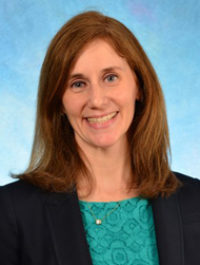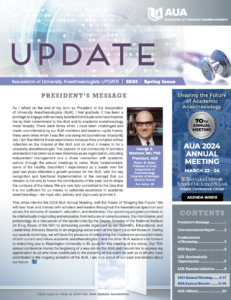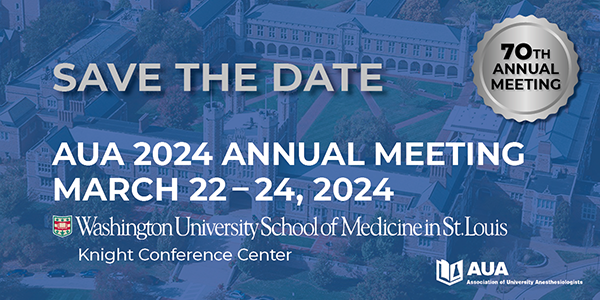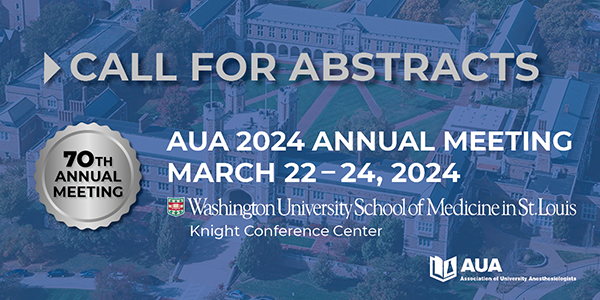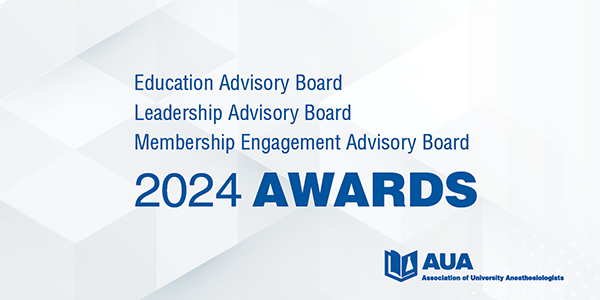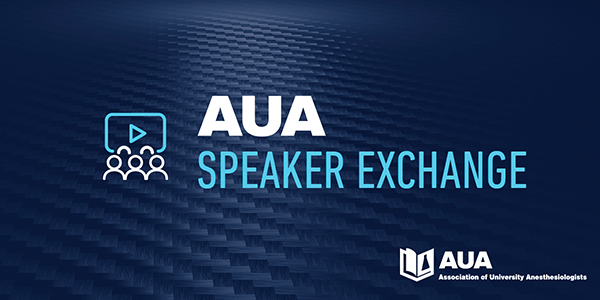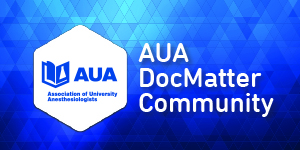EAB Report
This is such an exciting time to be part of the AUA. As the new Chair for the Educational Advisory Board (EAB), I am grateful for the opportunity to participate in the growth and development of our organization according to the desires and needs of our membership. I joined the AUA in 2017 and have been a member of the EAB since 2018. My passions within our field lie in resident education and education research. I would like to thank Dr. Keith Baker for his service as the EAB Chair for the past four years. He has done a tremendous job steering our Board and is an incredible mentor to me.
In addition to the change in leadership, we also have a number of new EAB members to welcome. Thank you to all the very qualified individuals who volunteered to participate on the EAB. Our new members include Dr. Barbara Jericho (University of Illinois Hospital and Health Sciences System), Dr. Arthur Calimaran (University of Mississippi Medical Center), Dr. Maurice Joyce (Tufts Medical Center), Dr. John Mitchell (Beth Israel Deaconess Medical Center), and our new Early Stage Anesthesiology Scholars member (eSAS) Dr. Ticha Munda (University of Rochester). We would also like to take this opportunity to thank the Board members whose term concluded this spring: Dr. Cynthia Lien, Dr. Edward Nemergut, and Dr. Lara Crock.
One of the strategic priorities for the AUA is to create recognition pathways for excellence in academic anesthesiology. In direct accordance with this goal, Dr. Baker implemented 2 new EAB awards this year. The Education Research Award acknowledges outstanding achievement and success in education research by an anesthesiologist. The inaugural recipient of this award is Dr. John Mitchell. Dr. Mitchell is an Associate Professor of Anesthesiology and Vice Chair of Education at Beth Israel Deaconess Medical Center. He is the founding director of CERTAIN (the Center for Education Research Technology and Innovation) within the Department of Anesthesia. He has published over 50 educationally related peer reviewed manuscripts and 100 scholarly works and has led, mentored, or collaborated on over a dozen educational research grants funded by sources including FAER and NIH. Much of his research has focused on integrating hand motion feedback into procedural learning, ultrasound education, and feedback and communication. Dr Mitchell will be joining the innovative team in the Department of Anesthesiology, Pain Management and Perioperative Medicine at Henry Ford Health in Detroit, MI this summer as Vice Chair for Academic Affairs where he will be building a state of the art educational research lab and applying educational research as a vehicle for faculty development.
The Education Innovation Award celebrates and recognizes new and innovative developments in medical education. The inaugural recipient of this award is Dr. Jed Wolpaw. Dr. Wolpaw is an Associate Professor and Residency Program Director at Johns Hopkins School of Medicine. He is the founder and host of the Anesthesia and Critical Care Reviews and Commentary (ACCRAC) Podcast. Since the development of the podcast in 2016, Dr. Wolpaw has produced over 200 episodes for an audience of over 50,000 listeners in more than 100 countries worldwide. He has changed the face of anesthesia education by providing an opportunity for our anesthesia residents to learn from experts in an asynchronous manner.
We plan to continue the foundational educational experiences of the AUA. We are in the process of planning the content for the next Annual Meeting. Additionally, we have 2 webinars scheduled for the fall. I will present alongside Dr. Randy Schell on “Using Cognitive Load Theory to Design Better Presentations” and Dr. Cathleen Peterson Layne will present on “Self-Assessment: Accuracy, Impact, and Ways to Improve It.”
As we look toward the future of the AUA, we were charged with multiple strategic goals. The theme of mentorship repeatedly surfaced. As a council, we believe it is important for the Boards to address this need in a collaborative fashion. Although we are still in the early stages of determining what this will look like, the EAB is hoping to provide education to our membership in how to serve as mentors.
I am proud to be an academic anesthesiologist. And as such, I am honored to be involved in the AUA as it pivots to address the current needs and desires of the membership while promoting excellence in academic anesthesiology.
